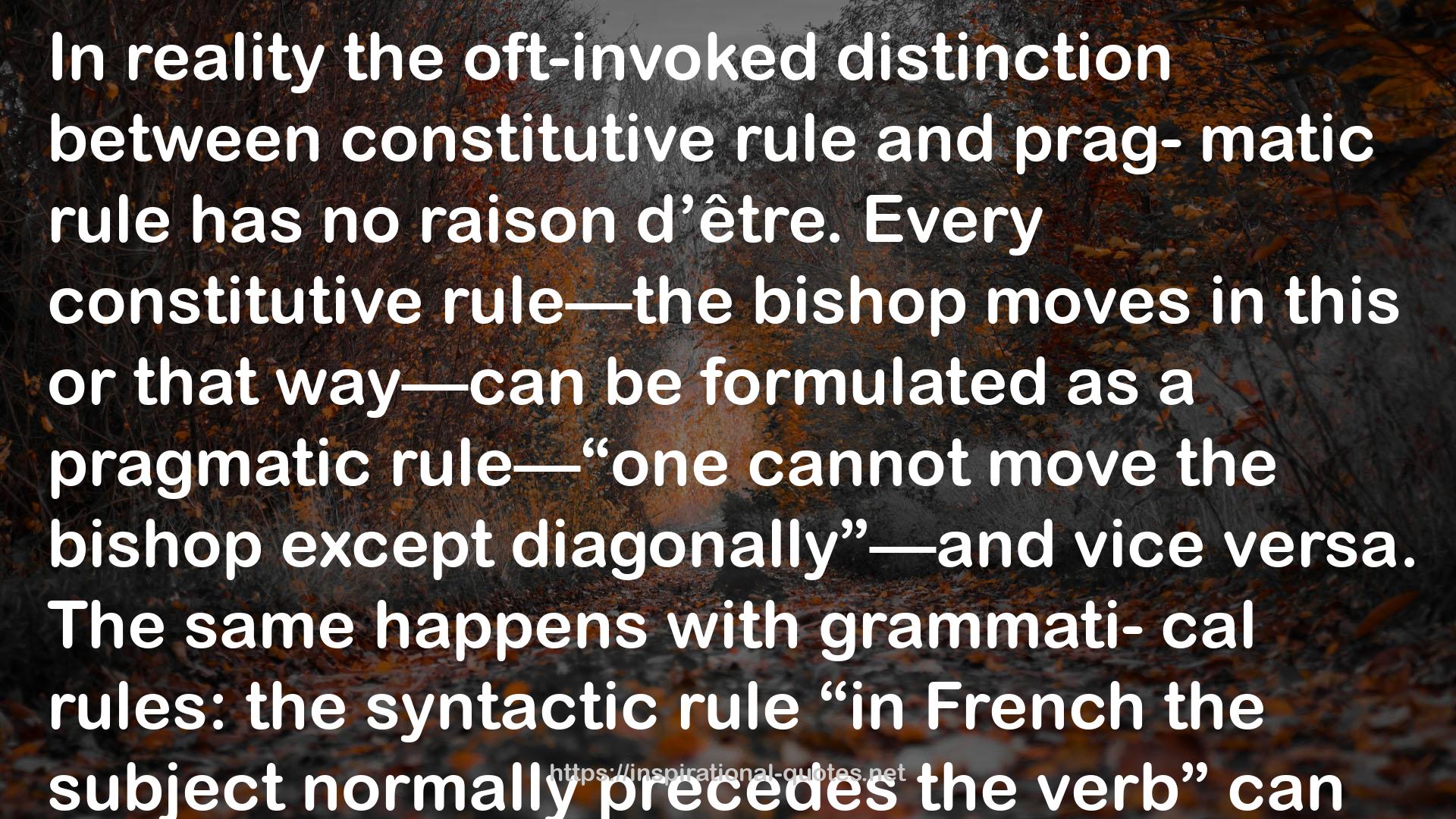" In reality the oft-invoked distinction between constitutive rule and prag- matic rule has no raison d’être. Every constitutive rule—the bishop moves in this or that way—can be formulated as a pragmatic rule—“one cannot move the bishop except diagonally”—and vice versa. The same happens with grammati- cal rules: the syntactic rule “in French the subject normally precedes the verb” can be formulated pragmatically as “you cannot say pars je ; you can only say je pars.” In truth it is a matter of two different ways of considering the game—or language: one as a formal system that exists in itself (namely, as a langue) and another as a use or praxis (namely, as a parole).
For this reason it has rightly been asked whether it is possible to transgress a rule of chess, like what constitutes checkmate. One would be tempted to say that transgression, which is impossible on the level of constitutive rules, is pos- sible on the pragmatic level. In reality, the one who transgresses the rule simply ceases playing. Hence the special gravity of the swindler: the one who swindles does not transgress a rule but pretends to keep playing when in reality he has left the game. "
― Giorgio Agamben , The Omnibus Homo Sacer
